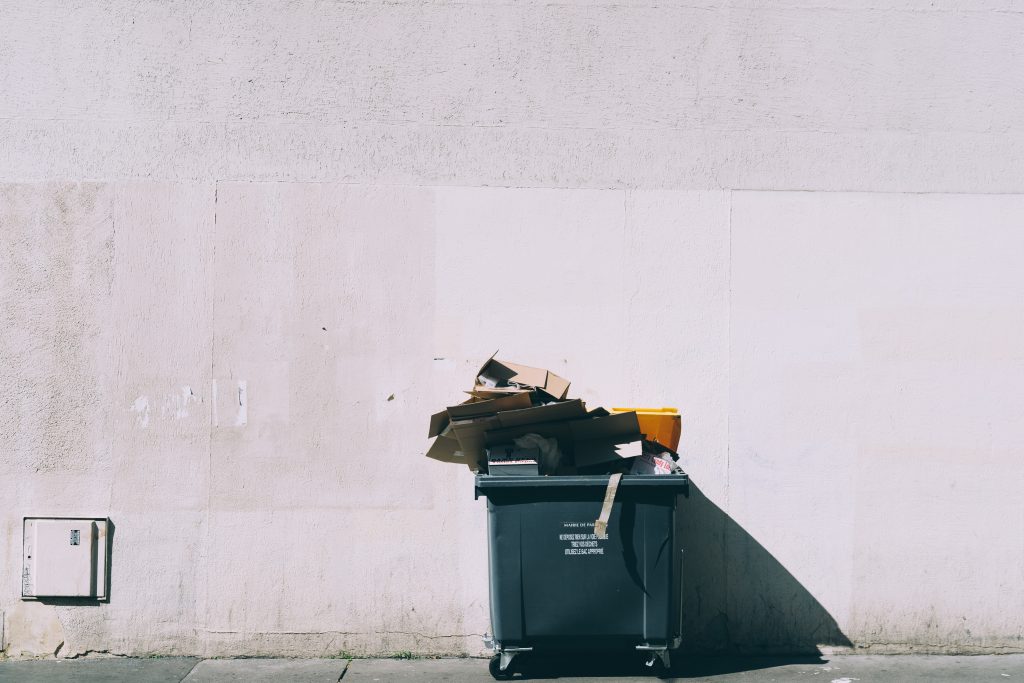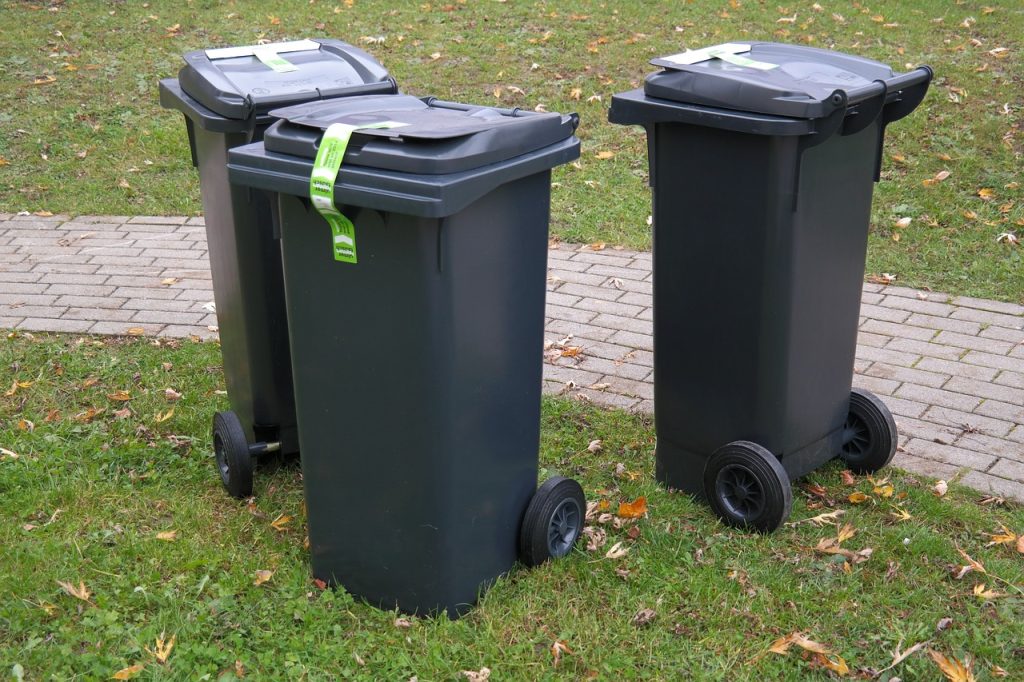Is it illegal to go through someones bin UK
Are you concerned about your privacy being infringed upon? Have you ever questioned the legality of rummaging through someone’s rubbish? This article will explore the laws and regulations surrounding bin diving in the UK, addressing any worries you may have and offering an understanding of this controversial subject.
What Does the Law Say About Going Through Someone’s Bin in the UK?
Going through someone’s rubbish bin in the UK is not against the law, but it is generally considered invasive and disrespectful.
The law states that once rubbish is placed outside for collection, it becomes the property of the local authority. However, there are exceptions. If you are suspected of being involved in criminal activities, such as identity theft or fraud, the police can search your bins with a warrant. Additionally, if you are found to be disposing of hazardous waste or not following proper waste disposal regulations, you may face legal consequences.
Therefore, it is important to follow correct waste disposal practices to avoid any legal issues.

What Are the Reasons for Going Through Someone’s Bin?
Going through someone’s bin, also known as “bin diving” or “dumpster diving”, is a controversial topic that raises questions about privacy and legality. While it may seem like a taboo practice, there are actually several reasons why someone might go through another person’s bin. In this section, we will explore the various motivations behind this act, including identity theft prevention, gathering evidence for a legal case, environmental concerns, and simply curiosity. By understanding these reasons, we can gain a better understanding of the complex issue of bin diving.
1. Identity Theft Prevention
Identity theft prevention is a crucial factor to consider when it comes to searching through someone’s rubbish. Here are some steps to take for identity theft prevention:
- Destroy personal documents that contain sensitive information, such as bank statements and credit card bills.
- Dispose of expired credit cards by cutting them into small pieces.
- Be cautious when sharing personal information online or over the phone.
- Regularly monitor your financial statements and credit reports for any suspicious activity.
- Use strong, unique passwords for online accounts and consider enabling two-factor authentication.
In 2005, a man named John Harrison discovered discarded bank statements in his neighbour’s bin. Concerned about identity theft, he reported it to the police, leading to the arrest of a fraudster who had been stealing mail from several houses in the neighbourhood. Thanks to Harrison’s vigilance, many people were protected from potential identity theft.
2. Gathering Evidence for a Legal Case
When gathering evidence for a legal case, it is crucial to follow proper procedures and ethical guidelines. Here are the steps to consider:
- Consult with a solicitor to understand the legal requirements and obligations.
- Identify the specific evidence needed to support your case.
- Research and gather information from publicly available sources, such as online databases or public records.
- Consider hiring a professional investigator who can gather evidence within legal boundaries.
- Collaborate with law enforcement if necessary, providing them with relevant information and cooperating with their investigation.
- Ensure that all evidence collected is legally obtained and admissible in court.
True story: In a high-profile fraud case, the prosecution team meticulously gathered evidence from bank records, surveillance footage, and witness testimonies to build a strong case against the defendant. The evidence presented in court played a crucial role in securing a conviction and delivering justice.
3. Environmental Concerns
Going through someone’s bin can be driven by various reasons, including environmental concerns. If you are worried about waste management and want to make a positive impact, here are a few steps you can take:
- Practice recycling and composting to reduce the amount of waste ending up in bins.
- Support initiatives for proper waste disposal and participate in community clean-up events.
- Advocate for sustainable packaging and encourage others to reduce, reuse, and recycle.
- Educate yourself and others on the importance of environmental conservation.
Pro-tip: Remember, while going through someone’s bin may not be illegal for environmental reasons, it is always best to respect people’s privacy and seek permission or alternative solutions.
4. Curiosity
Curiosity is one of the reasons why someone might go through someone’s bin. People may be interested in knowing more about someone’s lifestyle, habits, or personal information. However, it is important to note that going through someone’s bin without permission is not only invasive but also illegal in the UK. Instead, there are alternative ways to satisfy one’s curiosity, such as:
- Requesting information directly from the individual.
- Obtaining a court order if necessary.
- Contacting the local authorities for assistance.
It is crucial to respect others’ privacy and abide by the law.

Is it Legal to Go Through Someone’s Bin in the UK?
Going through someone’s bin in the UK is generally legal. However, it can be considered trespassing if you enter their property without permission. The UK does not have specific laws against bin diving, but local authorities may have regulations for waste management. It’s important to respect people’s privacy and not cause a mess while searching through bins. If you have concerns about someone going through your bin, you can put your bin on private property or use a secure waste disposal service.
What Are the Exceptions to this Law?
The UK law prohibits rummaging through someone’s rubbish bin without permission, but there are exceptions to this rule. Exceptions include if the action is authorised by law enforcement, if there is a court order, or if it is necessary for public health or safety reasons. Additionally, if the bin is placed on public property, like a pavement, it may be considered abandoned and accessible to the public. However, it is important to note that even in these cases, privacy rights should still be respected.
Fun fact: In the UK, the maximum penalty for illegally going through someone’s bin is a fine of up to £5,000.
What Are the Consequences of Going Through Someone’s Bin Without Permission?
Have you ever wondered about the legality of going through someone’s rubbish bin in the UK? While it may seem harmless, there can be serious consequences for this seemingly innocent act. In this section, we will discuss the potential civil and criminal consequences of going through someone’s rubbish bin without their permission. By understanding the legal implications, we can make informed decisions and avoid any legal troubles.
1. Civil Consequences
Going through someone’s bin without permission can have serious civil consequences in the UK. Here are the steps that may follow unauthorized bin snooping:
- The affected individual may file a civil lawsuit against the person who went through their bin.
- The court may award damages to the affected individual for invasion of privacy or other related claims.
- The person who went through the bin may be required to pay financial compensation to the affected individual.
- In some cases, a court order may be issued to prevent the person from going through any additional bins without permission.
In a similar case, a woman in the UK sued her neighbour for going through her bin and won the case. The court awarded her compensation for the invasion of privacy and the emotional distress caused. This story serves as a reminder of the potential consequences of unauthorized bin snooping.
2. Criminal Consequences
- Fines: Going through someone’s bin without permission can lead to fines imposed by the local authorities.
- Community Order: In some cases, individuals may receive a community order as a criminal consequence for bin trespassing.
- Probation: Offenders can be placed on probation, requiring them to meet certain conditions and regularly check in with a probation officer.
- Imprisonment: In extreme cases, individuals may face imprisonment as a criminal consequence for repeatedly engaging in bin trespassing activities.
What Are the Alternatives to Going Through Someone’s Bin?
Going through someone’s bin without their consent is a contentious issue and is often regarded as a breach of privacy. However, there are certain situations where individuals may feel compelled to go through someone’s bin, such as in cases where illegal activity is suspected. In this section, we will explore the alternatives to going through someone’s bin in the UK. These options include requesting information directly from the person, obtaining a court order, and seeking assistance from the local authorities. Let’s delve into these choices and examine their consequences.
1. Requesting Information from the Individual
When it comes to gathering information from an individual without going through their dustbin, there are several steps you can take:
- Initiate a conversation: Start by politely approaching the person and requesting the information you need.
- Provide reasons: Clearly explain why you are seeking the information and how it will benefit both parties.
- Offer alternatives: If the individual is hesitant, suggest alternative ways they can provide the information, such as through email or a face-to-face meeting.
- Respect privacy: Emphasize that their privacy is important to you and assure them that their personal information will be handled with care.
By following these steps, you can gather the information you need without resorting to going through someone’s dustbin.
2. Obtaining a Court Order
To obtain a court order for accessing someone’s bin in the UK, follow these steps:
- Gather evidence: Provide compelling reasons, such as identity theft prevention or legal case support.
- Consult a lawyer: Seek legal advice to understand the process and requirements.
- Prepare the application: Complete the necessary forms, including details of the specific information sought.
- Submit the application: File the application with the relevant court and pay any associated fees.
- Attend the hearing: Attend the court hearing to present your case and explain the need for accessing the bin.
Remember, obtaining a court order is a legal process that requires valid reasons and adherence to the law.
Fun Fact: In the UK, obtaining a court order is a common method of gaining access to information in legal matters.
3. Contacting the Local Authorities
If you need to address concerns regarding someone going through your bin, contacting the local authorities can be an effective step. Here are the steps you can take:
- Document the incident: Make note of the dates and times when you noticed someone going through your bin.
- Collect evidence: If possible, take photographs or videos of the individual going through your bin.
- Contact the non-emergency police line: Call the local authorities and provide them with the details of the incident.
- File a report: Provide the police with any evidence or information you have gathered.
- Follow their guidance: The authorities may provide you with advice on how to prevent further incidents or may investigate the matter further.
Remember, it is important to respect privacy laws and seek guidance from the local authorities to address such situations.







